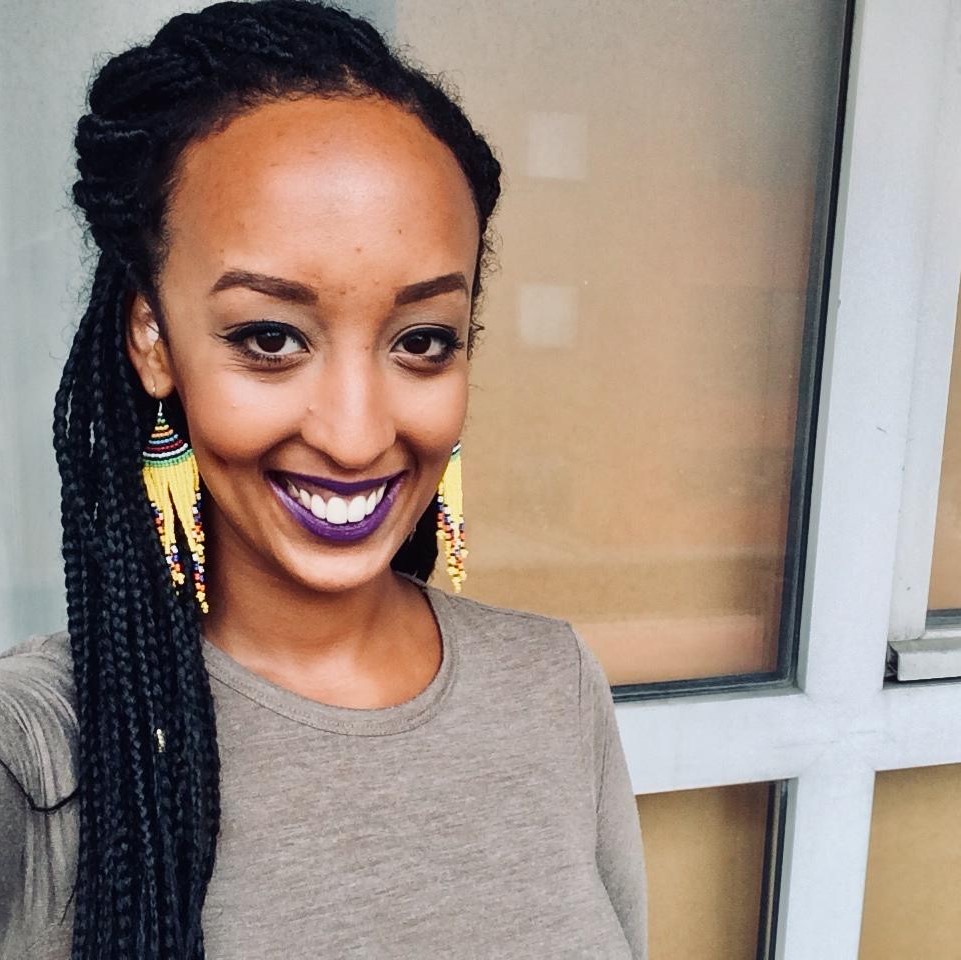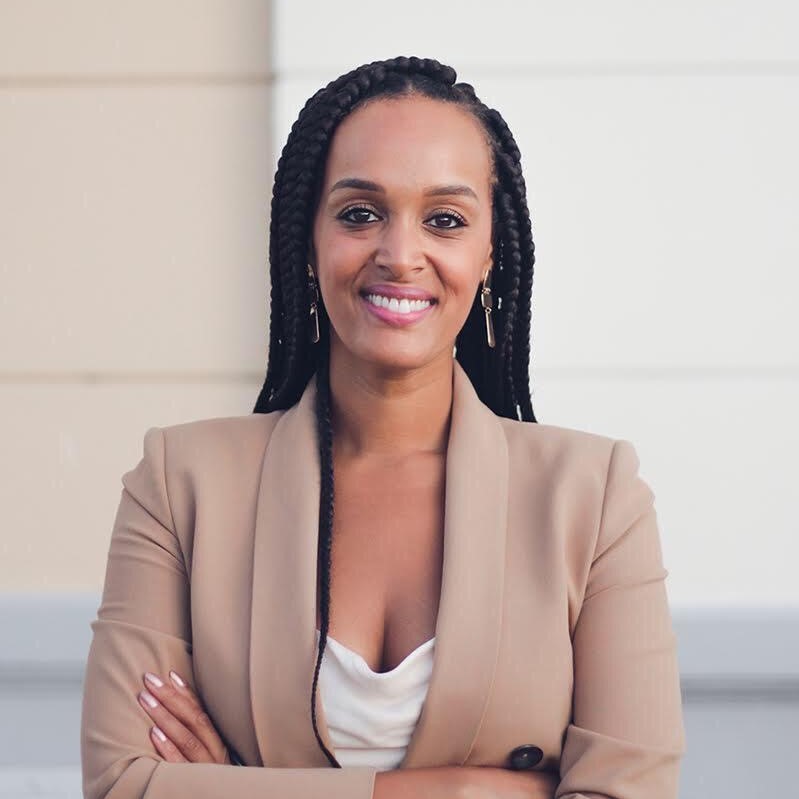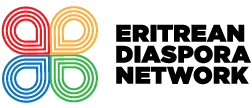This month’s professional spotlights feature Ruthie and Mikal, founders of Eriwellbeing. Mikal is a scholar and community builder. She recently received her PhD in Anthropology. Ruthie is a Digital Media Strategist and also a trained self-development coach. Read this month spotlights to learn more about their work and journey.
Mikal Woldu

Please briefly explain some of your responsibilities in your current career role.
I am a scholar and community builder. I have recently completed my PhD in Anthropology, so at the moment I am in the midst of building a career that comprises the two things I am truly passionate about: learning/education and community work. I am also the co-founder of Eriwellbeing, an online platform that seeks to promote mental health awareness among Eritrean and Ethiopian migrant communities and bridge the gap that exists between mental health professionals and our broader community.
How did you decide that this was the right career path for you?
Education and community work (particularly within black and brown spaces) have always been at the center of my life. My mum often reminds me of how excited I got as a child on the first day of school, and even as an adult, my passion for learning has continued to drive my work. Curiosity has always been a huge driving factor in my career and social interactions, and I was always drawn to creative spaces where learning took place while interacting with people from different walks of life. I am still in the process of ‘becoming’ as Michelle Obama would say, so for now I am just seeing where my passions take me.
What is the philosophy that drives your career?
I have a strong work ethic and discipline, and partially that is tied to my awareness of the sacrifices that my parents had to make to guarantee me a future here in the West. I would say that ‘to be of service’ and uplift the voices of the most marginalized among us, are my driving values. In any situation I am in, I ask myself the following questions: ‘How can I be of service to my broader community? How can I ensure that the next black or brown individual who walks my path, can have it slighter easier than I had it? How can I maximize the impact of my particular skill set and who I am as an individual, to support others?’ Having a positive impact on people is my overarching goal.
How did you merge your studies with your passion for community work?
One way I was able to do that was through my choice of research focus for my PhD. My doctoral thesis explores the experiences of settlement and community organizing of Eritreans living in London and Milan over time, with a focus on the role that migration policies have on migrants’ and second generations’ sense of identity, belonging and notions of citizenship. Through my research I was able to learn more about the history of Eritrea, the experiences of different cohorts of Eritrean migrants in two very different contexts, and gain insight into some of the challenges we face as a diasporic community. To be able to carry out such an in-depth research project on my own community was a privilege, and my desire to translate my observations and findings into actionable community work, is one of the reasons that led me to co-found Eriwellbeing with my good friend Ruthie.
Did you feel supported during your academic career, being the first in your family to go to University?
I felt very supported by my family, friends and community. The love and words of encouragement I received along the way have kept my motivation high even in moments of doubts. Academically I received very little support from the department and institution I was in. Unfortunately, I didn’t have a supportive supervisor and struggled to find good mentors, particularly as a first-generation university graduate and as a black woman going through a very white, male and middle-class industry. I was able to overcome those challenges by leaning into my chosen community of colleagues and peers and building relationships with other like-minded academics. My biggest take-away from my PhD journey is that you are as strong and successful as the support network you have around you. Choose your network wisely.
While in pursuit of your PhD, did you find that your social life suffered or were you able to find balance?
Naturally my social life was very limited. But because of the little time I had available to socialize, I was also a lot more selective with how and whom I chose to spend my free time with. I would only make time for meaningful connections and activities that brought me joy.
What inspired you to start Eriwellbeing?
The motivation to create a platform like Eriwellbeing was twofold. On the one hand, through my fieldwork I realized that different segments of our community were struggling with their mental health but had no tools nor culturally relevant resources to help them in dealing with it. On the other hand, direct and indirect experiences of poor mental health within my immediate network of friends and family made me realize that there was an urgent need for us to talk about mental health openly, or we would lose our loved ones because of it. Ruthie and I are not mental health professionals, but we know the extent to which our ‘culture of silence’ around problems is detrimental to our mental health, so we created Eriwellbeing to offer a safe space, a platform for us to come together and normalize the conversation around mental health.
How and why should members of our community better prioritize our mental health?
We should cater to our mental health the same way we do for our physical health; the two are deeply intertwined and need equal attention! At Eriwellbeing we are huge advocates for the adoption of a holistic approach to our wellbeing: eat nutritious food, drink your water, move your body and have fun with it. Mindfulness and practices that help you ground yourself can also be very effective in regulating our anxiety during those very uncertain times. Therapy is also a good tool if you have the means to access it, but if you don’t have the means, look out for charities and online services that might offer low-cost or free counseling. Finally reach out to loved ones and/or people you trust for help, particularly in moments of crisis. And when people reach out to us for help, let’s listen with an empathic ear and refrain from judgment. A strong and supportive network can make all the difference for our mental health. We are, after-all hardwired for social connections, as Brene’ Brown would say.
Outside of all your hard work and efforts toward building your brand, what do you do for fun? Hobbies?
Well, before Covid I used to go to concerts, exhibitions, film screenings and theatre plays. I also love to travel and can’t wait to do more of it when it’s safe to do so.
Rut Semere

Please briefly explain some of your responsibilities in your current career role.
I am a Digital Media Strategist, I’ve worked on the commercial side mainly with advertising, marketing and content creation for the last +10 years. In short, I help platforms monetize their digital products and help brands communicate their message to audiences worldwide.
I am also a trained self-development coach, where I work with people 1:1 to support them with their desired goals and transformation journeys in life.
How did you decide that this was the right career path for you?
I fell into the media industry as a newly graduate from my Masters degree (International Management MSc). I happened to graduate during the global financial crisis in 2008, it was really a tough time to find jobs. I came from a background of having worked with sales and marketing in the beauty industry (Estee Lauder). The only thing that I was sure of was that I wanted to change industries. I landed my first job in media through my personal network and relationships, it was however not something I knew much about. I was a fan of the brand (NBC Universal) but didn’t know much about the role or the industry, I took a leap and I am so happy I did. I’ve really enjoyed working in the media industry, from that moment I never looked back. It’s a young, fast moving industry that keeps you on your toes and where you learn continuously.
What is the philosophy that drives your career?
I think that depends on the phase of life that you find yourself in. In the early days of my career (12 years ago) as a daughter of immigrants, I just wanted to get started, prove myself, excel and thrive in my career. I wanted to climb the career ladder, earn more money, learn more. Those years were great, I was in a fast pace industry, in jobs that demanded a lot from me, I used to travel a lot for work and was really busy with my career.
Fast forward to today, with the insight I have about myself and my needs after experiencing burnout and other life experiences, my philosophy has changed. I live a much slower life today, my goals have shifted from being externally driven to more internally driven. My mental health, balance, physical health and overall wellbeing are really important to me and are at the core of my current philosophy for my career. I need to be able to carve out space for myself and my wellbeing in any career that I am in and find balance.
What inspired you to start Eriwellbeing?
It really started very spontaneously, call it inspired creation. My co-founder Mikal and I have been good friends for a long time and would often talk about the issues in our community. At the time, we were hearing about a lot of suicides in our community and felt called to start a conversation about these taboo and stigmatised topics that needed to be addressed. We partnered up with @eritreastolemyheart and Dr Yacob Tekie and launched a campaign in 2018 about mental health, geared to our community. The response we got was so overwhelmingly positive that we decided to create a platform to continue the mental health conversation with our community. It’s been great to be in community with our peers and be able to address the pain that the culture of silence around mental health has created for us.
How can one identify signs of burnout?
I’ll share some symptoms that I experienced during my burnout:
- Lack of energy
- Lost appetite
- Fatigue/exhaustion
- Isolation/ wanting to be alone
- Overwhelming feeling of sadness
- Feeling hopeless
- Loss of enthusiasm/optimism
- Anxiety
- Loss of interest in things that I would normally enjoy (food, gym, going out, socializing)
- Irritability
What are some of the ways you cope with or combat feelings of burnout?
- Identify your feelings first, write down the symptoms, get clear on what you’re experiencing, get it out from your head and on a piece of paper. Validate for yourself what you’re going through.
- Talk to somebody, a loved one, someone you trust, ideally a mental health professional (therapy)
- Slow things down, when we are experiencing feelings of burnout it’s a sign from our body that something is wrong, out of balance, it’s our bodies ways of alerting us that something is up. Slow things down so that you can really give yourself a chance to understand what’s going on (past or present).
- Rest, nurture yourself with good foods, get a massage, go to a sauna, do breathing exercise, focus on restorative practices that allow you to catch up with yourself. Sleep properly, eat wholesome, drink water.
- Spend time in nature, nature has a way of calming us down and make sure you breathe properly.
Do you find that having to quarantine and adjust to a different way of life lead to more burnout?
In my personal experience I feel that it’s given me a chance to rest more, to not have to socialize and be everywhere but just be at home and be in nature and take care of me. I feel like I’ve heard a lot of people around me say that they’ve enjoyed these past few moments despite the stressful aspects of uncertainty. I think a lot of people have used this divine timeout to rest and spend more time with family and at home which is something that we needed collectively.
How do you stay motivated when it comes to completion of tasks or reaching goals when you may have a full plate?
I start with prioritizing. I get clear on what’s truly necessary and most important as well as most urgent. I also get clear on what is possible right now, what I have the capacity for and choose accordingly. I no longer try to do everything, my to do list is quite short these days, my priorities are set based on my capacity and I adjust as I go along. I think it’s important to check in with yourself and get clear on what you’re capable of right now while understanding from a bigger picture what you’re driving towards, keep a view of the micro and macro goals and calibrate as needed. I also believe that we get motivated by doing, so I try to focus on just starting, taking action and working towards my goals. I know that action precedes motivation so I try to remind myself of this often.
Outside of all of your hard work and efforts toward building your brand, what do you do for fun? Hobbies?
I love spending time with family and friends.
I really like spending time in nature and I go to the gym regularly. I also really enjoy reading and baking, I find both of those activities very relaxing. Under normal circumstances I do love to travel but that’s obviously harder these days.
